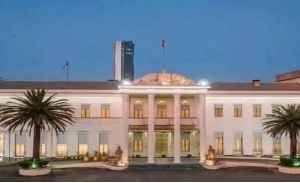
Timket Festival, also known as Ethiopian Epiphany, is one of the most vibrant and celebrated religious festivals in Ethiopia. This annual event captivates both locals and eager travelers alike, offering a unique opportunity to witness the rich cultural heritage of the country. With its colorful processions, traditional rituals, and spiritual significance, Timket Festival is truly a feast for the senses.
At the heart of Timket Festival lies the commemoration of Jesus Christ’s Baptism in the River Jordan. This event holds immense religious importance for Ethiopian Orthodox Tewahido and Catholic Christians, symbolizing the purification of sins and the reaffirmation of faith. It is a time of spiritual reflection, forgiveness, and renewal.
During Timket Festival, one can expect to witness grand processions and joyful celebrations throughout Ethiopia. From Addis Ababa to Lalibela, Gondar to Axum, various cities come alive with vibrant displays of traditional clothing, music, and dance. Pilgrims dressed in immaculate white garments converge on water bodies, carrying embroidered umbrellas and singing hymns as they reenact the Baptism of Christ.
One of the most captivating aspects of Timket Festival is the extraordinary rituals that take place on the eve and actual days of the festivals. The night before the main event, priests carefully carry replicas of the Ark of the Covenant, known as Tabots, from churches to temporary camps. These Tabots are then blessed and sprinkled with holy water in the early hours of the morning, amidst a sea of faithful followers. The atmosphere is electric, filled with devotion and spiritual fervor.
This festival is one of the most significant religious celebrations in Ethiopia and offers a unique opportunity for visitors to experience the rich traditions and customs of the Ethiopian Orthodox Church. With its colorful processions, elaborate rituals, and joyful festivities, the Timket Festival provides an immersive cultural experience that showcases the deep religious devotion and vibrant cultural heritages of the Ethiopian people.
Timket (Ethiopian Epiphany) is one of the most vibrant and celebrated religious festival with its colorful processions, traditional rituals, and spiritual significance, tourists who attended the Timket Festival in Addis Ababa, Janmeda said.
Emmy Glaffa from England told The Ethiopian Herald that Timket Festival is truly a feast for the senses.
She came with her mother to visit Ethiopia a week before Timket. She visited Arbaminch and back to Addis to attend the colorful Janmeda Timket.
As to her, Timket is a splendid street festival that is beyond imagination.
“It feels great to be baptized with a wondering holy water by priests together with a huge get together of people. Everyone here is very happy and I enjoy the ceremonial process,” she said.
“It is incredible and Ethiopian Timket is a big festival. The people are very friendly and open. So, I would like to come back and recommend other tourists to visit Ethiopia.”

Martin Reakes Williams attended Timket at Janmeda for a second time.
He said that Timket festival is very interesting and so many people attend it.
“I am interested with the spiritual part of the ceremonial process and it is good to remember that God had been baptized like a human. All the gathering here is renewing commitment to the Christ through baptism,” he said.
According to him, at the heart of Timket Festival lies the commemoration of Jesus Christ’s Baptism in the River Jordan by John the Baptist.
He said this event holds immense religious importance for Ethiopian Orthodox Tewahido and Catholic Church faithful symbolizing the purification of sins and the reaffirmation of faith, adding that, it is a time of spiritual reflection, forgiveness, and renewal.
On his part, Benjamin Kalkum from Germany said that Timket festival is joyful, impressive, and the overall process is beautiful.
If God allows I would love to visit the famous Timket in Gonder and other parts of the country in the future, he said.
He further said that Ethiopia could generate more from the tourism sector if utilized the Timket festival properly and ensure sustainable peace to create conducive environment for the sector.
Recognizing the importance of safeguarding Timket’s rich cultural heritages, various initiatives have been undertaken to ensure its preservation. Efforts include documentation of the rituals, educating younger generations about the significance of the festival, and engaging with religious and community leaders to uphold the authentic practices.
Timket Festival provides a unique insight into Ethiopian culture, allowing tourists to delve into the customs and traditions of this fascinating nation. By embracing this vibrant celebration, you can forge connections with the locals and gain a deeper understanding of Ethiopia’s rich history and religious heritages.
In sum, across Ethiopia, the Timket Festival stands as a symbol of faith, unity, and cultural identity. As a tourist, witnessing this awe-inspiring event offers an unforgettable experience, enabling you to see the beauty and vibrancy of Ethiopian culture firsthand. So, why not embark on a journey to Ethiopia and immerse yourself in the magic of Timket Festival. Discover the richness of this ancient tradition and create memories that will last a lifetime. Timket is not only a time of deep religious significance but also a social and cultural event that reinforces the community’s identity and strengthens the bonds between its members.
The Ethiopian Timket Festival has its roots in ancient Christian traditions that date back to the early centuries AD. It originated during the time of the Aksumite Empire and has since evolved and adapted over the centuries. The festival has been an integral part of Ethiopian cultural heritage and has experienced various historical influences, including the introduction of Christianity to Ethiopia in the 4th century. Its historical background reflects the fusion of diverse cultural elements, making it a truly unique and historically significant celebration in Ethiopia.
BY TEWODROS KASSA
THE ETHIOPIAN HERALD FRIDAY 26 JANUARY 2024





